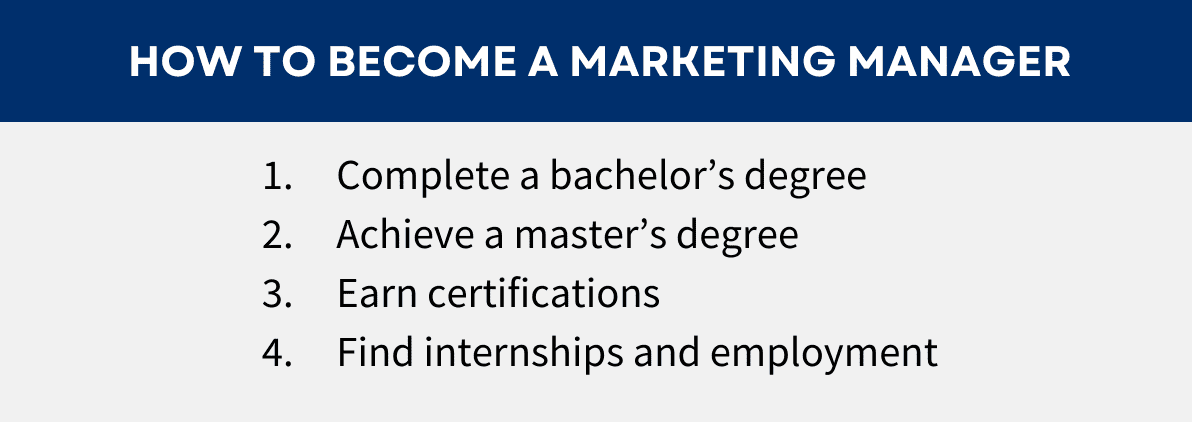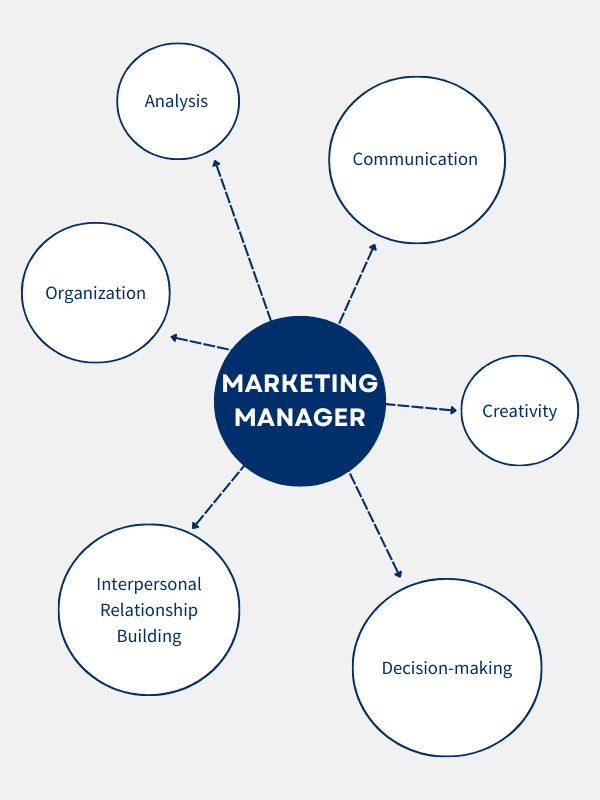Becoming a Marketing Director requires gaining relevant experience and honing your leadership and strategic planning skills. Start by pursuing a Bachelor’s degree in marketing or a related field, gain experience in various marketing roles, and then work your way up to managerial positions.
Consider obtaining a Master’s degree in business administration or a related field to boost your credentials and increase your chances of becoming a Marketing Director. Networking with professionals in the industry and staying updated on marketing trends and technologies can also open up opportunities for career advancement.
As the demand for marketing professionals continues to grow, the role of Marketing Director has become increasingly appealing to those seeking a leadership position in the field. With the right education, experience, and skill set, individuals can secure this position and oversee the development and implementation of marketing strategies to drive business growth and success. This article will explore the steps and qualifications needed to become a Marketing Director in today’s competitive market.
1. Set Clear Career Goals
Setting clear career goals is crucial for anyone aspiring to become a marketing director. Without a clear path in mind, it can be challenging to navigate the corporate ladder and reach higher positions. By defining your career goals, you can plan the necessary steps and focus your efforts on achieving them. Let’s explore how to set clear career goals effectively.
1.1 Assess Your Skills And Interests
Assessing your skills and interests is the first step towards setting clear career goals. Take the time to reflect on your strengths, weaknesses, and what truly motivates you. Consider the following points:
- List your core competencies and skills related to marketing.
- Identify your areas of interest within the marketing field, such as digital marketing, brand management, or market research.
- Reflect on your previous experiences and projects to determine what aspects of marketing you enjoyed the most.
By conducting this self-assessment, you’ll gain valuable insights into your strengths and interests, helping you shape your career goals accordingly.
1.2 Identify Areas Of Marketing Specialization
Identifying areas of marketing specialization is essential as it allows you to explore lucrative opportunities and stand out in a specific field. To identify your specialization, consider the following steps:
- Research various marketing specialties, such as content marketing, social media marketing, or event marketing.
- Analyze the current industry trends and demands to determine which specializations are in high demand.
- Evaluate your skills and interests to identify the areas that align with your strengths.
By focusing on a specific area of marketing, you can become an expert in that field, enhancing your chances of career advancement to the position of a marketing director.

Credit: www.regent.edu
2. Gain Relevant Education And Experience
2. Gain Relevant Education and Experience
2.1 Pursue A Marketing Degree Or Certification
Consider enrolling in a reputable university or institution offering marketing programs. Pursuing a marketing degree can equip you with essential knowledge and skills, setting the foundation for a successful career as a marketing director.
2.2 Seek Internship Opportunities
Internships provide invaluable real-world experience. Look for opportunities to intern with marketing agencies or companies, gaining practical exposure to the industry and building your professional network.
2.3 Gain Hands-on Experience
Take advantage of project-based work, freelance opportunities, or volunteer for marketing projects. This hands-on experience complements formal education and demonstrates your ability to apply theoretical knowledge in real-world scenarios.
3. Develop A Strong Professional Network
Developing a strong professional network is crucial for aspiring marketing directors. Building relationships within the industry can open doors to new opportunities and invaluable insights. Here are a few ways to expand your network:
3.1 Attend Industry Events And Conferences
Networking at industry events and conferences can provide great opportunities to connect with like-minded professionals and stay updated on the latest trends.
3.2 Join Professional Marketing Organizations
Being a part of professional marketing organizations allows you to engage with peers, learn from experienced professionals, and gain access to exclusive resources and opportunities.

Credit: www.youtube.com
4. Hone Your Marketing Skills
4. Hone Your Marketing Skills
4.1 Stay Up-to-date With Industry Trends
In the fast-paced world of marketing, staying up-to-date with the latest industry trends is vital for success. To become a marketing director, it is essential to be aware of the latest technologies, consumer behaviors, and market dynamics. Embracing ongoing learning through industry publications, webinars, and networking events can help you stay at the forefront of these developments.
4.2 Enhance Your Analytical Abilities
Marketing directors rely heavily on data and analytics to make informed decisions. Developing strong analytical abilities is crucial to understanding consumer insights, market performance, and campaign effectiveness. Make use of tools like Google Analytics, and attend courses or workshops to improve your data analysis skills.
4.3 Learn Effective Communication And Presentation
Effective communication and presentation skills are essential for a marketing director. Being able to convey complex marketing strategies in a clear and compelling manner is crucial for gaining buy-in from stakeholders and team members. Invest in public speaking courses, workshops, or coaching to refine these skills.
5. Showcase Your Achievements And Portfolio
As a marketing director, one of the most important aspects of your role is to demonstrate your expertise and track record in the field. Potential employers want to see tangible evidence of your achievements and the results you have generated in previous roles. This can be done through creating an impressive resume and cover letter, building a strong online presence, and showcasing your past results.
5.1 Create An Impressive Resume And Cover Letter
To catch the attention of hiring managers, you need to create an impressive resume and cover letter that highlight your key achievements and skills. Your resume should be clear and concise, with bullet points to showcase your accomplishments in previous roles. Include specific metrics such as increased leads, revenue growth, or successful campaigns to demonstrate your impact. Make sure to tailor your resume and cover letter to the specific job you are applying for, emphasizing relevant skills and experiences.
5.2 Build An Online Presence
In today’s digital age, having a strong online presence is crucial for any marketing professional. Develop a personal brand by creating a professional website or portfolio that showcases your work. Include case studies, testimonials, and examples of successful marketing campaigns you have led. Utilize social media platforms such as LinkedIn and Twitter to connect with other professionals in the industry. Consistently share valuable content and engage with others to establish yourself as a thought leader. Regularly update your profiles and ensure that your online presence aligns with the image you want to portray.
5.3 Demonstrate Your Results
Actions speak louder than words, and potential employers want to see concrete examples of your successes in driving results. Present your achievements in a tangible way by providing evidence of the positive impact you have made in previous roles. Use data, charts, and graphs to showcase the performance of your marketing campaigns. Highlight key metrics, such as increased website traffic, conversion rates, or customer engagement. Be prepared to discuss your results in detail during interviews, demonstrating your ability to achieve tangible outcomes.
By showcasing your achievements and portfolio effectively, you can position yourself as a strong candidate for a marketing director role. Remember to continuously update and refine your resume, cover letter, online presence, and results to stay competitive in the ever-evolving marketing industry.
6. Prepare For Interviews And Career Advancement
Preparing for interviews and focusing on career advancement is crucial for aspiring Marketing Directors. This section will guide you on how to effectively navigate the interview process and acquire the skills necessary to progress in your career. Let’s explore the key steps you can take:
6.1 Research The Company And Role
Prior to any interview, it is essential to thoroughly research the company and the specific role you are applying for. Understanding the company’s mission, vision, and values demonstrates your keen interest and suitability for the position. Equipped with this knowledge, you can tailor your interview responses to align with the company’s objectives.
To effectively research the company and role, consider the following:
- Explore the company website, paying attention to their products, services, and any recent news or press releases.
- Review the company’s social media profiles to gain insight into their culture, brand voice, and engagement with customers.
- Utilize professional networking platforms like LinkedIn to learn more about current and former employees, their experiences, and the company’s reputation in the industry.
6.2 Practice Common Interview Questions
Preparing for interviews involves practicing common interview questions to enhance your performance and boost your confidence. By rehearsing your responses, you can effectively articulate your qualifications, skills, and experiences to potential employers.
Here are some common interview questions to practice:
- Can you elaborate on your previous marketing experience and successes?
- How would you handle a challenging project with tight deadlines and limited resources?
- Describe a time when you developed and implemented a successful marketing campaign.
- How do you stay updated with the latest marketing trends and techniques?
- How would you approach managing a team of marketing professionals?
6.3 Seek Mentors And Professional Development Opportunities
Continual professional development plays a vital role in advancing your marketing career. Seek mentors and opportunities that allow you to learn, grow, and expand your skill set.
Consider the following strategies:
- Connect with experienced marketing professionals who can offer guidance, insights, and advice.
- Attend industry conferences, workshops, or webinars to stay up-to-date with the latest marketing trends and best practices.
- Take advantage of online courses, certifications, or training programs that can enhance your marketing knowledge and expertise.
By actively seeking professional development, you demonstrate your commitment to growth and improvement, positioning yourself as a strong candidate for career advancement.

Credit: www.regent.edu
Frequently Asked Questions
What Does It Take To Be A Director Of Marketing?
To become a director of marketing, one needs a bachelor’s degree in marketing or related field, extensive experience in marketing, strong leadership skills, strategic thinking, creativity, excellent communication, and ability to analyze market trends.
How Long Does It Take To Become A Marketing Manager?
Becoming a marketing manager takes around 5-10 years, depending on education and experience level. Entry-level roles may require a bachelor’s degree, while advanced positions typically need a master’s degree and relevant work experience. Ongoing learning and professional development are key to advancement.
What Qualifications Do I Need To Be A Marketing Manager?
To become a marketing manager, a bachelor’s degree in marketing or related field is typically required. Many employers prefer candidates with experience and a master’s degree. Strong communication and leadership skills are also essential.
What Is The Highest Marketing Position?
The highest marketing position is the Chief Marketing Officer (CMO). It is the senior executive responsible for managing and directing an organization’s marketing efforts. The CMO plays a crucial role in developing and executing marketing strategies to drive business growth and enhance brand visibility.
What Qualifications Are Needed To Become A Marketing Director?
To become a Marketing Director, typically a bachelor’s degree in marketing or related field is required, along with several years of experience in marketing roles.
Conclusion
Becoming a marketing director involves gaining relevant experience, honing essential skills, and staying updated with industry trends. By consistently improving your leadership abilities and leveraging networking opportunities, you can position yourself for success in reaching this esteemed role. Persistence, dedication, and a strategic mindset will pave the way for your career advancement.
Remember, the journey to becoming a marketing director entails continuous learning and professional growth.











